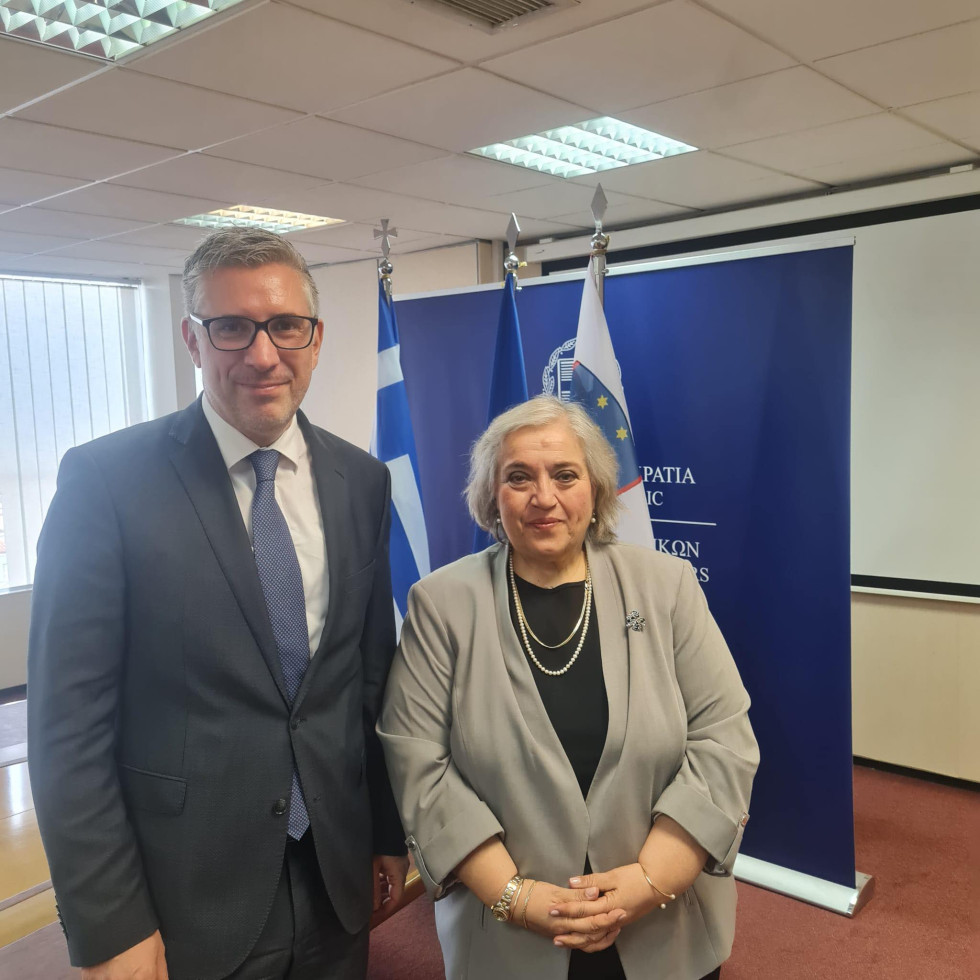State Secretary Štucin in Athens for political consultations and discussions on the Western Balkans

State Secretary Marko Štucin and Greek Deputy Foreign Minister Alexandra Papadopoulou | Author Ministrstvo za zunanje in evropske zadeve
During their discussion, State Secretary Štucin and his host, Deputy Minister Papadopoulou, focused on strengthening political cooperation between their two countries and exchanged views on current European and foreign policy issues. Particular emphasis was placed on the Western Balkans and its European future as a priority, as well as on intensifying cooperation between the two countries during Slovenia's two-year non-permanent membership of the UN Security Council, particularly in the light of the Greek candidacy for non-permanent membership of that body for the 2025–2026 term.
With its knowledge and understanding of current developments in Southern and Eastern Europe, the Eastern Mediterranean and the Middle East, Greece is an important partner for Slovenia. State Secretary Štucin and his host exchanged views on the current situation in the Western Balkan countries and agreed on the need to keep the enlargement process high on the EU agenda as a guarantee for peace, prosperity and stability in the region. They underlined the importance of equal criteria and benchmarks in the context of EU enlargement, both with the countries of the Eastern Trio (Ukraine, Moldova and Georgia) and with the Western Balkans. Slovenia from the north and Greece from the south have been active in promoting regional cooperation not only in the Western Balkans but also in the Mediterranean region, including within the framework of the informal EUMED Group.
The two officials later exchanged views on the changing geopolitical situation in the world and on the efforts to find solutions to the crises in Ukraine, Gaza and the Red Sea. They also discussed the EU's relations with third countries, including Türkiye, the US and China. The main message coming out of the consultations was the need for a regular dialogue between Slovenia and Greece and for a united, more active EU approach towards the Western Balkans, which is crucial for Europe's geostrategic position and for the wider security and stability of the region.

